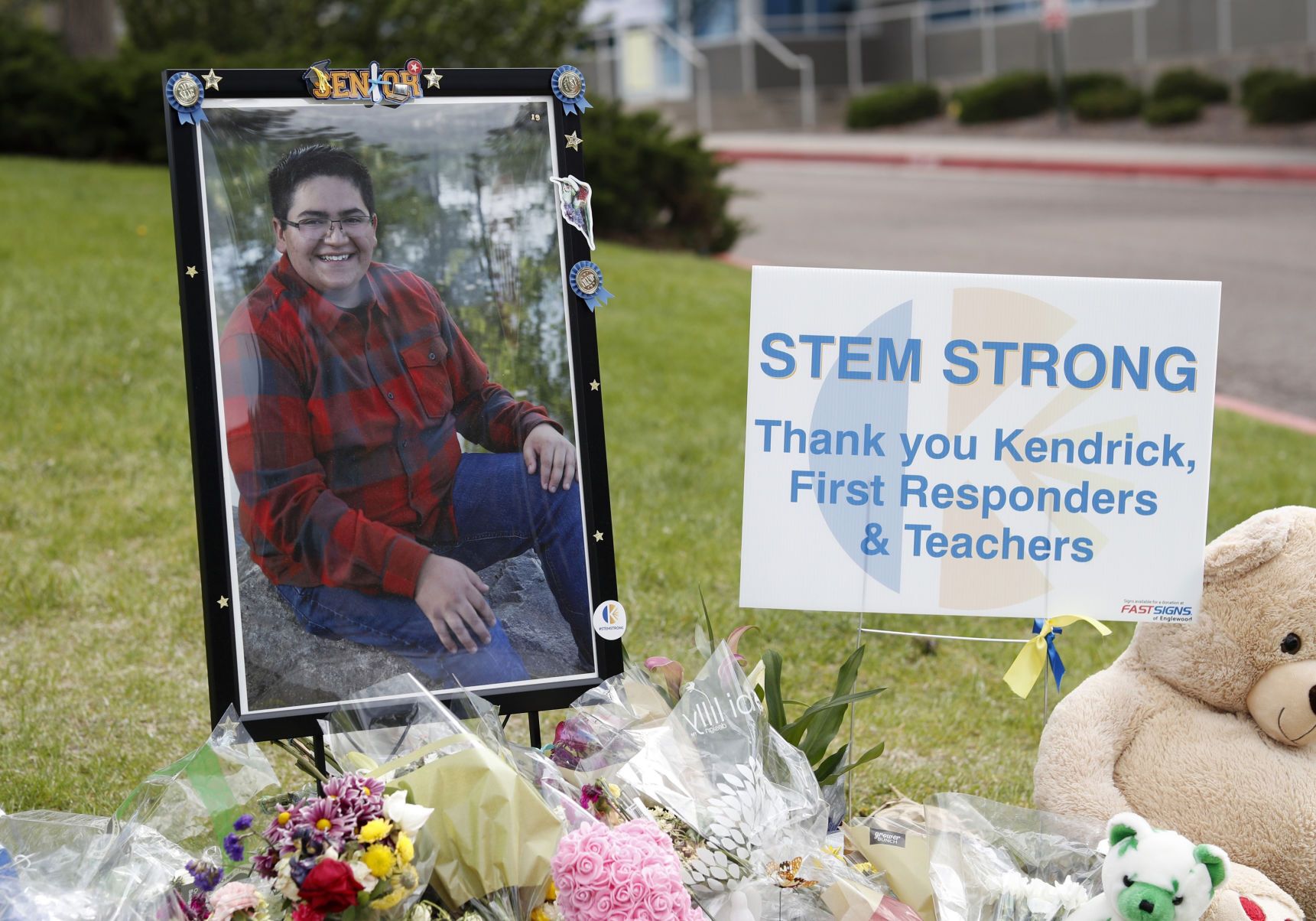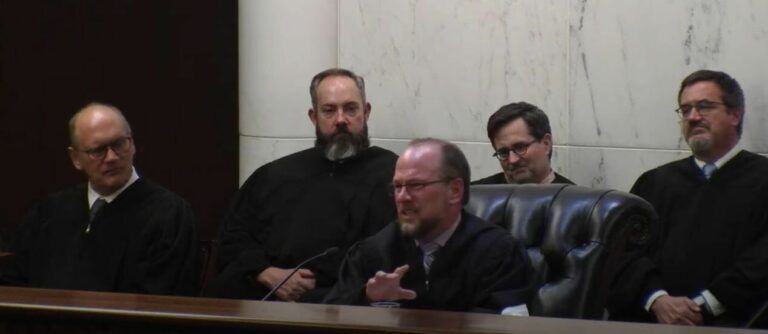Appeals court rules civil trial over Kendrick Castillo’s death not required if STEM School pays max damages

Colorado’s second-highest court determined on Thursday that a civil trial over the 2019 shooting death of Kendrick Castillo is not required after the defendant agreed to pay the maximum damages available to Castillo’s parents, without admitting liability.
John and Maria Castillo, the parents of Kendrick, sued STEM School Highlands Ranch in 2021, two years after Kendrick died while attempting to stop a pair of armed students from shooting others. The Castillos brought their claims under the Claire Davis School Safety Act, a 2015 law named for an Arapahoe County student murdered at her own high school years prior.
The law permitted lawsuits against school districts and charter schools for injuries stemming from “an incident of school violence.” It did so by creating an exception to the broad shield afforded to public entities and employees for the injuries they cause under the Colorado Governmental Immunity Act.
But after a Douglas County judge dismissed the Castillos’ lawsuit, they turned to the Court of Appeals arguing it did not matter that STEM School had offered to pay the maximum amount that plaintiffs can recover under the law. They maintained they were still entitled to proceed toward a trial.
A three-judge Court of Appeals panel disagreed.
“True, a jury trial involving matters of public interest often serves to educate the public and incentivize policy changes,” wrote Judge Timothy J. Schutz in the Nov. 13 opinion. “On the other hand, there is an equally compelling interest in allowing governmental defendants to avoid unnecessary litigation in order to conserve public resources.”
Case: Castillo v. STEM School Highlands Ranch
Decided: November 13, 2025
Jurisdiction: Douglas County
Ruling: 3-0
Judges: Timothy J. Schutz (author)
Matthew D. Grove
Steve Bernard
The Castillos alleged that STEM School failed to properly respond to the risk of a school shooting, which fell within the carve-out to governmental immunity. STEM School quickly attempted to dismiss the case as moot because the maximum the Castillos could recover was $387,000, and STEM School intended to deposit that amount with the court without admitting to liability.
Then-District Court Judge Jeffrey K. Holmes recognized there was precedent for doing so in other governmental immunity circumstances, but he rejected the request as premature. He noted the Claire Davis School Safety Act entitled plaintiffs to “vigorous discovery” of evidence about the underlying events.
After the parties engaged in discovery, STEM School once again tried to end the case with the maximum payment. This time, Holmes agreed that because the only relief the Castillos sought was money damages, and because STEM School was offering just that, the case was moot.
The Castillos “argue that because the (law) provides for discovery this also necessarily means that they are entitled to a trial. The court disagrees,” Holmes wrote in February 2023.

The Castillos appealed, arguing they should not effectively be forced into a settlement where the school did not admit liability, and the public deserved answers through a jury trial about “what went wrong.” STEM School countered that the only reason to have a trial under the circumstances would be “to exact retribution by holding alleged misconduct up to ‘public shame’.”
“It’s not public shaming. It’s public learning,” the Castillos’ attorney, Nelson Boyle, told the appellate panel at oral arguments. “Judicial decisions and jury verdicts change behavior.”
“I’m struggling to see what a jury trial looks like,” said Judge Matthew D. Grove. “I guess what I’m saying is, I have trouble seeing this as anything more than an extended press conference. I’m not sure the legislature intended for the court to be that forum.”
Ultimately, the panel concluded that while the legislature intended for plaintiffs to be entitled to a maximum amount of damages and the discovery of evidence, it did not also grant a right to have the case end in a jury trial. Once STEM School offered to pay the maximum and engaged in discovery, there was no further relief the court could provide the Castillos.
“The line drawn by the General Assembly reflects a decision to facilitate the completion of discovery but not to compel a trial,” wrote Schutz. “We are not at liberty to disregard this line simply because the issues to be addressed at a potential trial present a matter of public interest.”
Boyle said the Castillos will appeal to the Colorado Supreme Court, and that the plaintiffs’ evidence includes almost two dozen depositions and thousands of pages of documents.
“STEM continues to insult Kendrick, his parents, and all of the other victims by denying fault,” he said. “A jury needs to see this evidence and render a loud and clear verdict that will make every school safer.”
Attorneys for STEM School did not respond to a request for comment.
The case is Castillo et al. v. STEM School Highlands Ranch et al.
Editor’s note: This article has been updated with additional comments.













